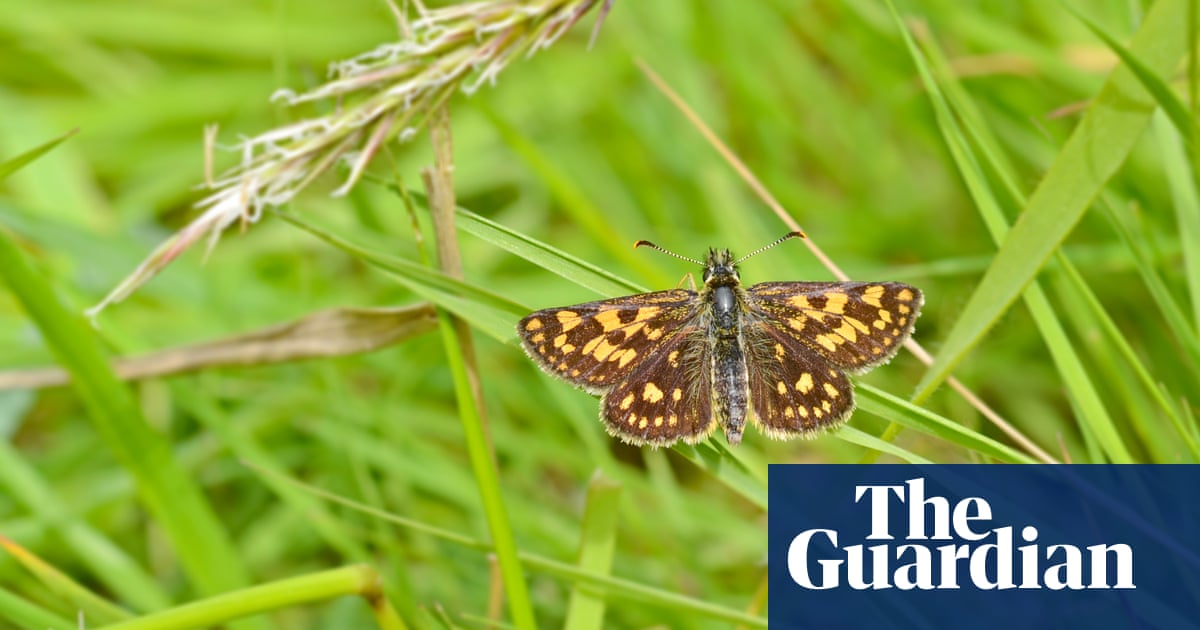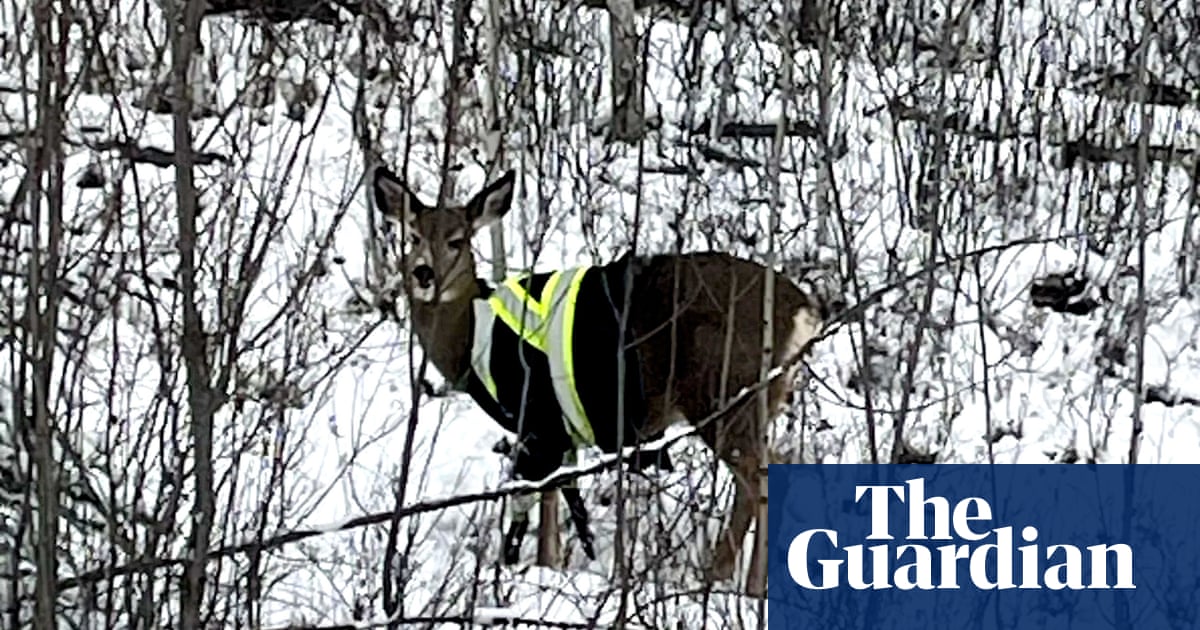Good news for lazy gardeners: one labour-saving tweak could almost double the number of butterflies in your garden, according to a new scientific study – let the grass grow long.
In recent years nature lovers have been extolling the benefits of relaxed lawn maintenance with the growing popularity of the #NoMowMay campaign. Now an analysis of six years of butterfly sightings across 600 British gardens has provided the first scientific evidence that wilder lawns boost butterfly numbers.
The benefits of leaving areas of grass long were most pronounced in gardens within intensively farmed landscapes, with up to 93% more butterflies found and a greater range of species. Gardens with long grass in urban areas showed an 18% boost to butterfly abundance.
“We wanted to be able to give tried and tested gardening advice that will benefit butterflies, as we know lots of people want to help,” said Dr Richard Fox, the head of science at Butterfly Conservation and a co-author of the study, published in the journal Science of the Total Environment. “This study proves, for the first time, that allowing a patch of grass to grow long will attract more butterflies into your garden.”
The study found that another butterfly bonus for gardens was flowering ivy, which can flourish on walls in urban backyards. This increased the numbers of the holly blue – the caterpillars feed on ivy and holly – and the red admiral and comma, which benefit from its flowers as a crucial nectar source in autumn.
According to the study, long grass in gardens attracts more butterfly species whose caterpillars feed on grasses. These include meadow browns, gatekeepers, speckled woods, ringlets and small skippers. Fox said this suggested the boost in population was not simply because long grass provided more nectar from wildflowers within it, such as dandelions or knapweed, but because butterflies were seeking or actually breeding in rewilded lawns.
“It’s a really positive sign,” said Fox. “What people are doing with long grass in gardens is creating potential or actual breeding habitat. In order to make an impact on the biodiversity crisis we need to be creating places where butterflies and other wildlife can breed. This is simple, doesn’t cost anything and saves you time and effort.
“If you have a patch of long grass you may have grasshoppers, beetles and ant hills as well – there will be all these spinoffs.”
Private outdoor space makes up 7,280 sq km of land across Britain – an area larger than the counties of Derbyshire, Leicestershire and Nottinghamshire combined – and an estimated 62% of this is vegetated gardens, and so potentially vital wildlife habitat.
According to Butterfly Conservation, the benefits of long grass to butterflies and other invertebrates is likely to be found in other grassy public spaces too, such as parks, school grounds, allotments and road verges. Through its Wild Spaces programme, the charity aims to transform 100,000 areas across the UK to help support butterfly populations.
Fox said the principle of managing long grass for butterflies was the same as wildlife-friendly meadow management: don’t do everything all at once.
To provide good habitat for butterfly caterpillars, long grass has to be left until late September or October before being cut lightly, and some species such as small skippers require long grass all year round.
“If you take part in #NoMowMay our message is, don’t just mow your grass in June,” said Fox.



